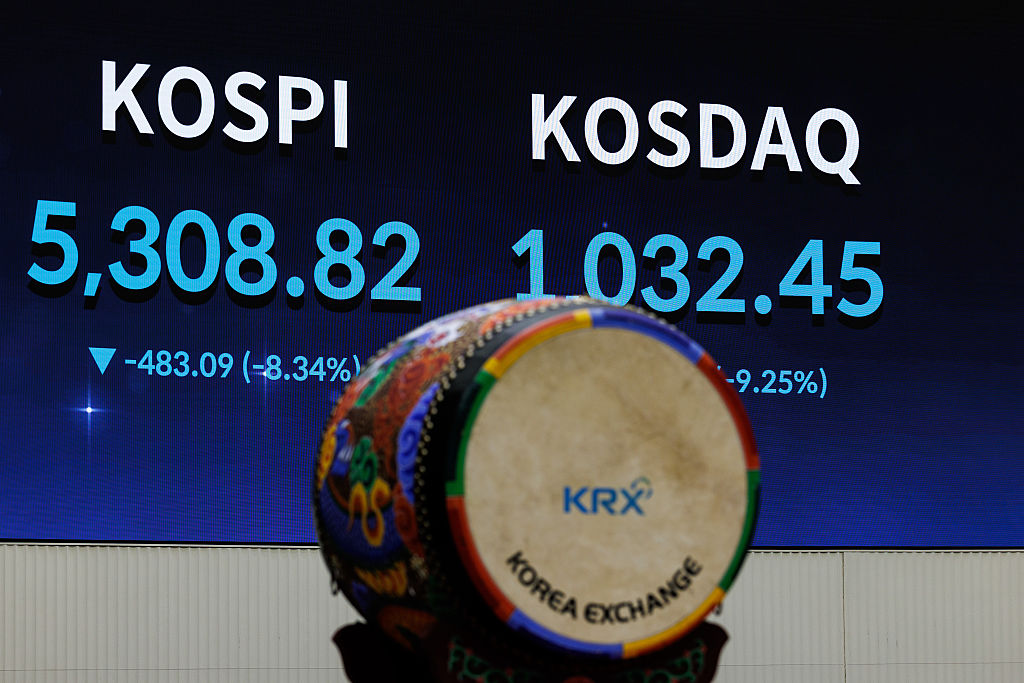Four lessons from Russia – and what the West must do to hobble the bear
Despite many people giving Russia the benefit of the doubt when deciding where to put their money, Simon Nixon remains cautious about investing in Russia. Here, he explains why.

Get the latest financial news, insights and expert analysis from our award-winning MoneyWeek team, to help you understand what really matters when it comes to your finances.
You are now subscribed
Your newsletter sign-up was successful
Want to add more newsletters?
Events in Georgia over the last week or so have certainly clouded the political landscape. But for investors, the picture has suddenly become clearer. A few months ago I wrote in MoneyWeek that I thought Russia was becoming a menace and the West wasn't taking the threat to our security and economic interests seriously enough. Shortly afterwards, I spent a few days in Moscow at an international investor conference, trying to understand why investors continued to display enthusiasm for all things Russian even as Russia acted with such apparent belligerence to the rest of the world.
I discovered most investors were wary (how could they not be, given the alarming way BP was being treated by its Russian joint venture partners?), but were prepared to give it the benefit of the doubt. There was hope that newly installed President Medvedev might be allowed to be more than a puppet of his predecessor, Putin, and would act on his fine words about the need for the rule of law. Russia's harassment of some of its former satellites was dismissed by the optimists as merely heavy-handed attempts to force customers to pay the market price for gas and oil. Besides, most investors were persuaded that the weakness of Russia's economy outside of natural resources, the flimsiness of its banking system and its huge need for infrastructure investment would ensure it stayed wedded to international trade.
Given Russia's actions in Georgia, it's now possible to see how little that optimism was justified. In particular, we have learned four things:
Try 6 free issues of MoneyWeek today
Get unparalleled financial insight, analysis and expert opinion you can profit from.

Sign up to Money Morning
Don't miss the latest investment and personal finances news, market analysis, plus money-saving tips with our free twice-daily newsletter
Don't miss the latest investment and personal finances news, market analysis, plus money-saving tips with our free twice-daily newsletter
1. Putin is still calling the shots. The sight of the Russian prime minister visiting soldiers in North Ossetia over the weekend confirmed Medvedev, who has responsibility for foreign and military affairs, is President in name only. That's worrying, because Putin shows every sign of being an old-fashioned Russian autocrat with an alarming interest in recreating the Soviet empire. BP now knows the risks of doing business in Russia, having been victim of an outrageous shakedown by its Russian joint venture partners, seemingly with tacit approval of the Russian state. Investors who still think BP is a one-off are deluding themselves.
2. Russia's interest in its former satellites is far from benign. The current conflict in Georgia follows a campaign of harassment going back to the early 1990s. It also follows similar attacks against other former Soviet republics, such as Ukraine. In Kazakhstan, which has attracted $17bn of foreign direct investment in recent years, the government has started to become cool to Western firms and recently forced a renegotiation of its oil leases. Now that Russia has shown it is willing to use force to secure its objectives in what it calls the "near abroad", these have all become less attractive places to invest.
3. Russia presents a serious threat to European energy security. Events this week make the situation stark. Russia claims it was acting to protect Russian minorities. But its attacks in undisputed Georgian territory and demands for Georgian President Saakashvilli to be removed suggest its real goal is control over the pipeline from Azerbaijan to Turkey that crosses the country. Russia has made little secret of its ambition to use energy to deploy its power a threat Europe has failed to take seriously enough. So far, Russia has been able to divide the EU by doing deals with individual states such as Germany and Italy. Ideally, this shock will spur moves to a more integrated EU energy policy although don't bet on it. More likely, Western energy firms will continue to be squeezed by the Russians, while European economies will become increasingly vulnerable. The case for a new nuclear programme in Britain which will always be stuck at the end of any pipeline just got more compelling.
4. The recent oil-price rise was a bubble. Had the attacks taken place earlier in the summer, when oil prices were still rising fast, Russia's attack on a country that hosts such an important European oil supply line would have sent oil through the roof. Instead, the price has barely budged suggesting when this crisis is over, the price will continue to fall. That's good news for beleaguered Western economies, which can now look forward to lower inflation next year. Better still, it should curb Russia's swagger and that of other bully-boy exporters such as Venezuela and Iran emboldened by $150 oil. The best thing the West could do now is to redouble efforts to burst the commodity bubble, if necessary by tightening monetary policy. Sure, that might cause some pain in the West, but nothing like the pain that oil back below $70 a barrel would cause Russia, with its soaring inflation and slowing growth. It would be a tragedy if the West, having lost the stomach to confront Russia militarily, had also lost the will to confront it economically.
Simon Nixon is executive editor of Breakingviews.com.
Get the latest financial news, insights and expert analysis from our award-winning MoneyWeek team, to help you understand what really matters when it comes to your finances.
Simon is the chief leader writer and columnist at The Times and previous to that, he was at The Wall Street Journal for 9 years as the chief European commentator. Simon also wrote for Reuters Breakingviews as the Executive Editor earlier in his career. Simon covers personal finance topics such as property, the economy and other areas for example stockmarkets and funds.
-
 One million more pensioners set to pay income tax in 2031 – how to lower your bill
One million more pensioners set to pay income tax in 2031 – how to lower your billHundreds of thousands of pensioners will be dragged into paying income tax due to an ongoing freeze to tax bands, forecasts suggest
-
 Stock market circuit breaker: Why did Korean shares pause trading?
Stock market circuit breaker: Why did Korean shares pause trading?The fallout from the conflict in the Middle East hit the Korean stock market on 4 March, with shares forced to temporarily stop trading. What is a stock market circuit breaker, and why did the KOSPI trigger one?
